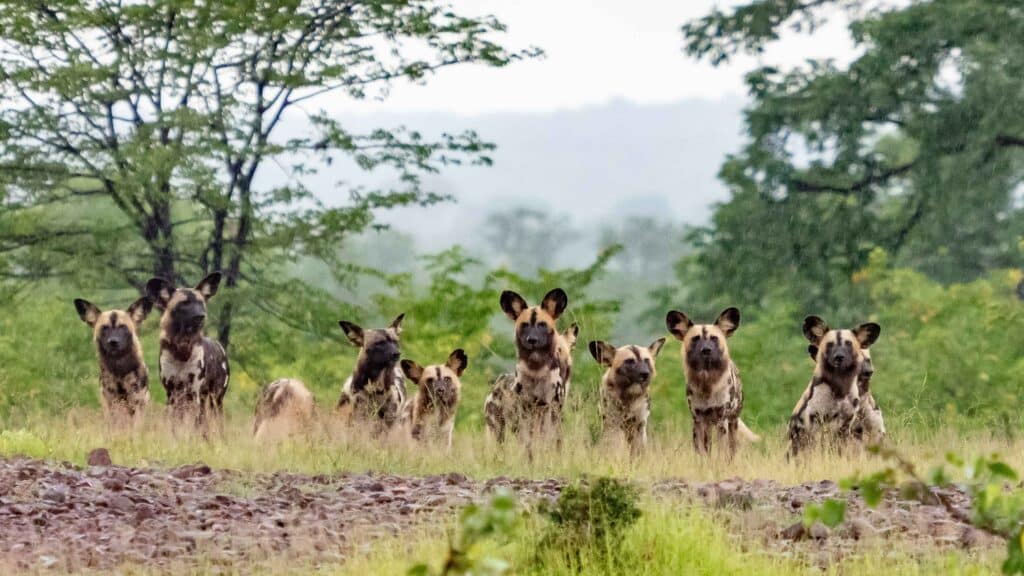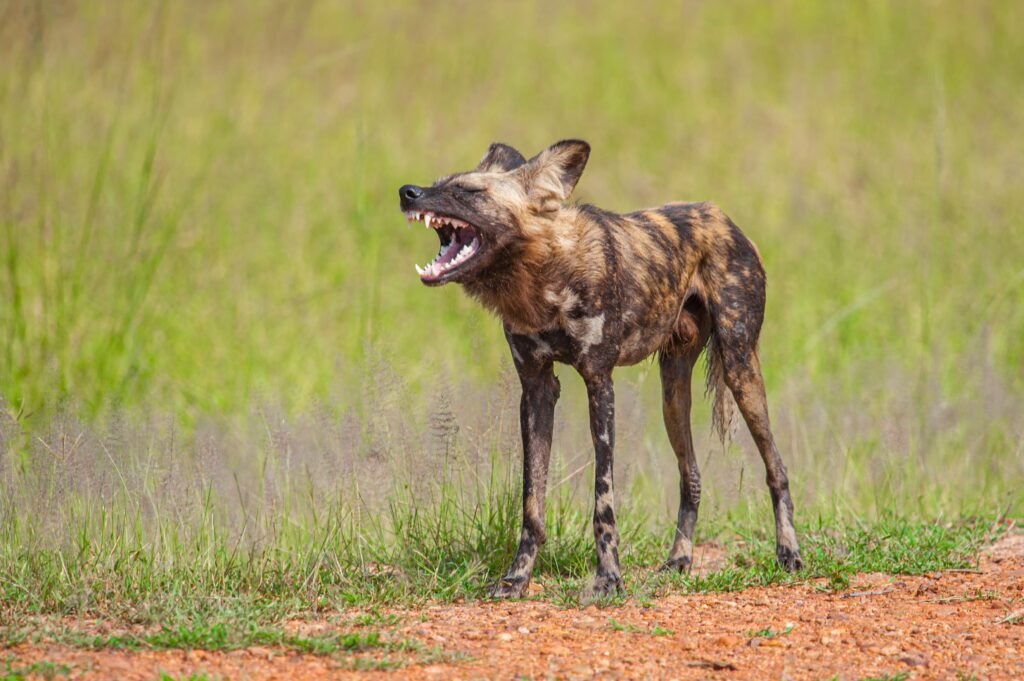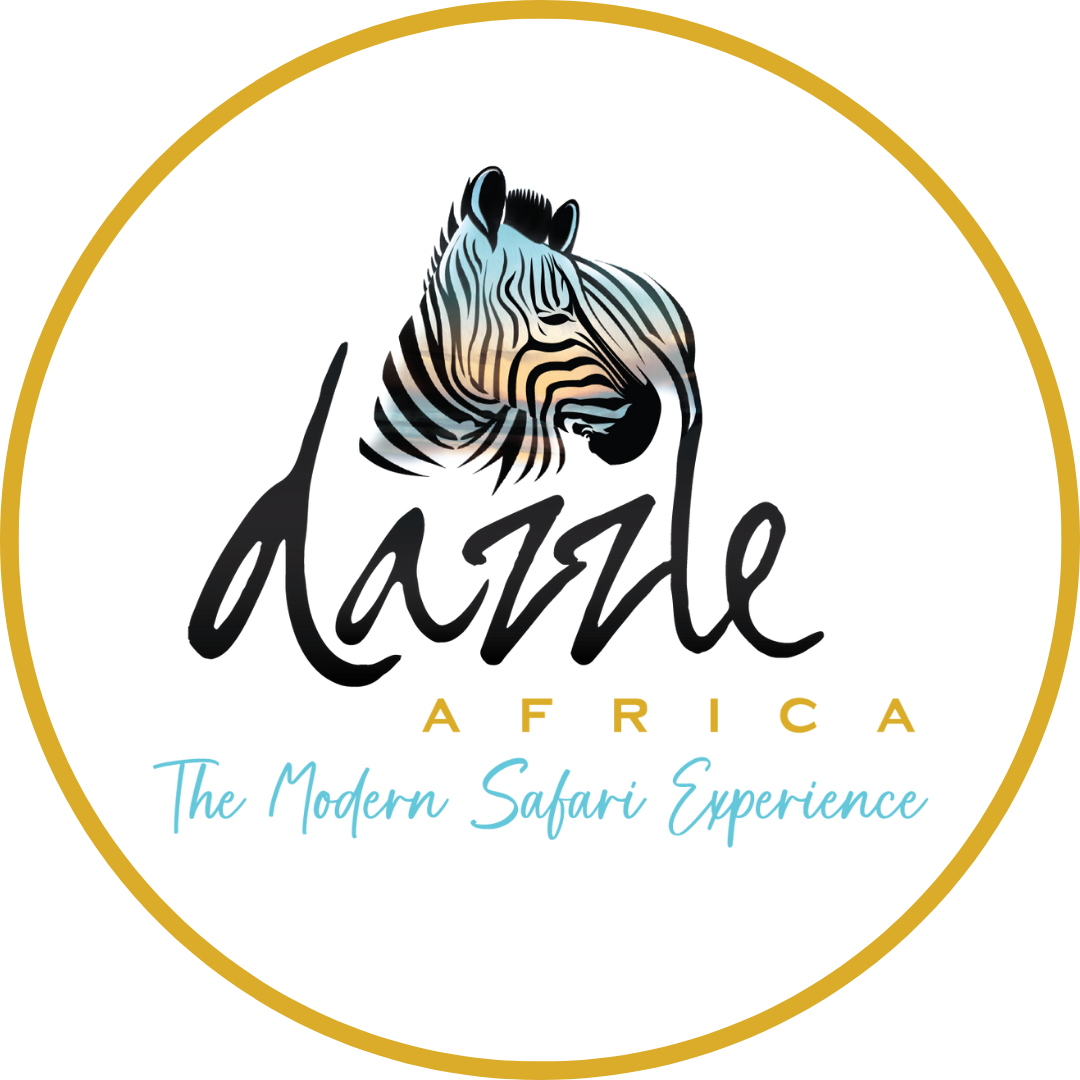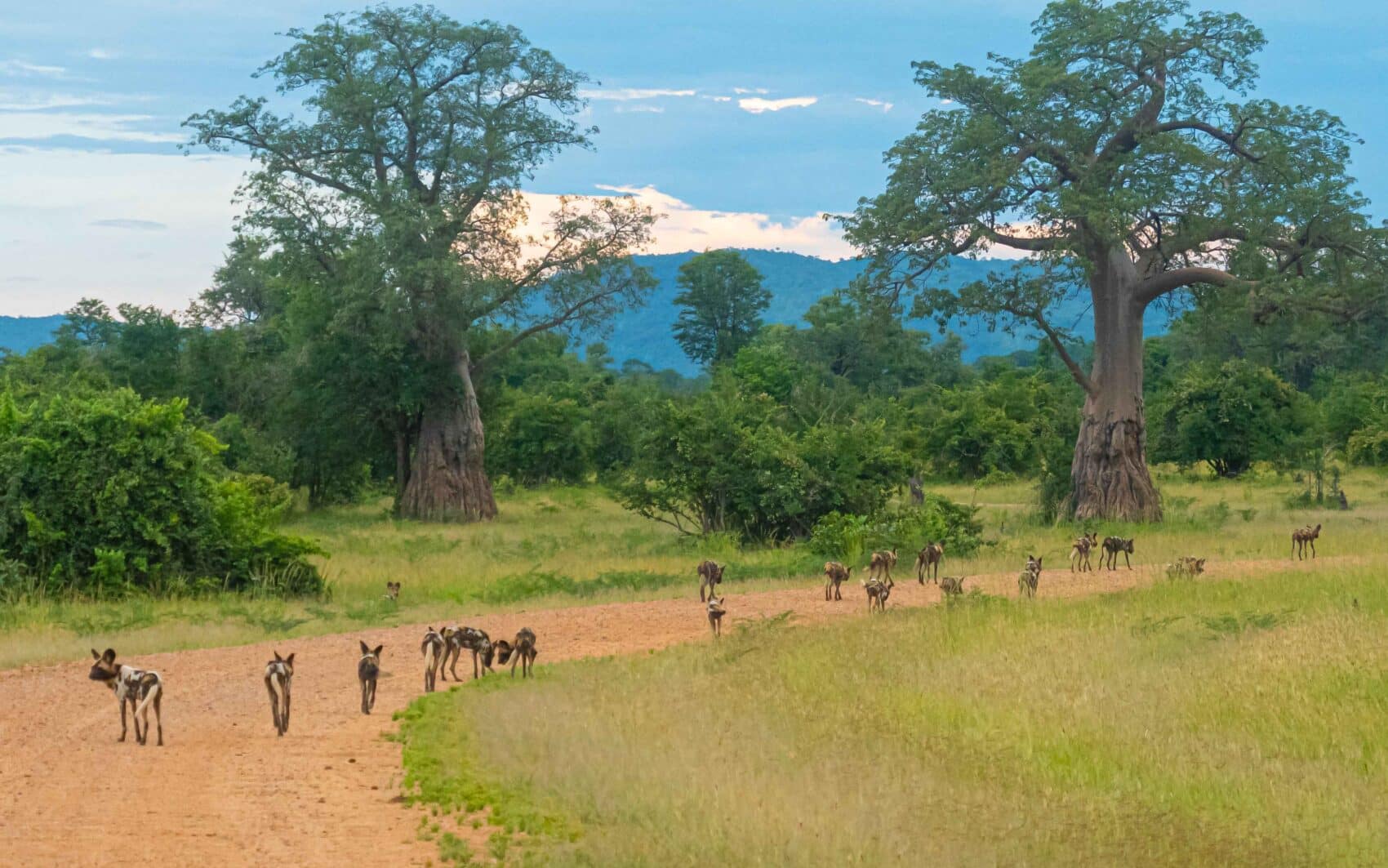The African wild dog, or painted wolf, is the most endangered of Africa’s large carnivores, with an estimated 6000 individuals remaining, and only six countries considered to have viable populations of this highly social species. Zambia is one of these stronghold countries, and Dazzle’s conservation partner, the Zambian Carnivore Programme (ZCP), is a leader in conservation for dogs and other large carnivores.
Why carnivores? Large carnivores require much more space than other mammals, so studying and protecting carnivores also helps to protect the wider ecosystem and other species. ZCP is a worldwide leader in conserving wild dogs, and does so with a strong emphasis on field-based protection. Their team works on the ground, year-round, to merge cutting-edge science with targeted actions to protect carnivore populations that are threatened by poaching, habitat loss, and other human impacts.

Photo Credit: Mike Paredes
In 2022, ZCP monitored 442 individual dogs in 49 packs, in addition to their work on other species like lions and cheetahs. Wild dogs are not targeted by poachers, but lose their prey to them and are often caught in wire snares—nooses set for antelope that can catch, maim and kill anything that encounters them. Snares are easy to make and can be set by the dozens. As a social species, if a dog gets snared, others can get snared attempting to help them. Prey depletion and snares thus pose one of the greatest risks to remaining wild dog populations in Zambia and across the African continent.
ZCP conducts conservation work on wild dogs in three ecosystems in Zambia that collectively total an area over three times the size of Yellowstone National Park but are far more remote and inaccessible. The use of satellite/GPS collar technology is fundamental to this making this work possible. Fitted to select individuals in a pack, these collars provide multiple GPS locations of the group of dogs each day. These locations are uploaded and sent to ZCP via satellite, allowing field teams to locate the dogs from the ground and through aerial tracking throughout the year. Teams monitor the movements, and field-based veterinary teams can rescue snared dogs. Locations are also provided to snare-removal teams that target areas of high-use and high-risk for the packs. This field-based protection, or ‘halo effect’ has been successfully implemented throughout Zambia’s wild dog strongholds and has demonstrated positive effects for wild dog populations.
Dazzle Africa supporters have been supporting these collars for several years, and ZCP can do more with our help!
A recent harrowing story provides an example of the importance of this collaborative work in action. Wild dogs move in packs and can travel long distances, nearly 10 miles per day on average. Along Kafue National Park’s eastern boundary—a very high snare risk area—dog monitoring teams from ZCP and Musekese Conservation supporting the Greater Kafue Landscape Ltd. (GKLL, the park managing authority) conducted routine monitoring of a remote pack of dogs using the satellite collar locations. Unusual movements indicated that the dogs might be in trouble. Field monitoring and vet teams immediately mobilized and coordinated with GKLL patrol teams in the area, finding 7 dogs caught in snares. While two of the dogs unfortunately had already died, the team was able to remove snares from 5 other members of the pack, including the alpha male, who were then reunited with their family. Patrol teams pulled out remaining snares and park management provided supplemental food for recovery, as well as aerial support for monitoring and additional veterinary treatment for injured dogs. Without these collars and teamwork, the pack could have suffered a more catastrophic loss.
With each wild dog saved we protect these amazing animals into the future. A recent ZCP analysis found that the offspring of a single de-snared dog rescued in 2014 has gone on to sire 304 pups that made up 17 packs.

Source: Zambian Carnivore Programme
Want to join this effort? Any amount helps, and with $2,500 we can provide a satellite collar that allows ZCP and partners to protect a wild dog pack for two years by providing daily locations to field teams and anti-snaring patrols.
Donate here today and list “carnivore conservation” in the notes!P.S. When you join a Dazzle safari, you support our conservation partners and also have the chance to see wild dogs in person.

Photo Credit: Mike Paredes

